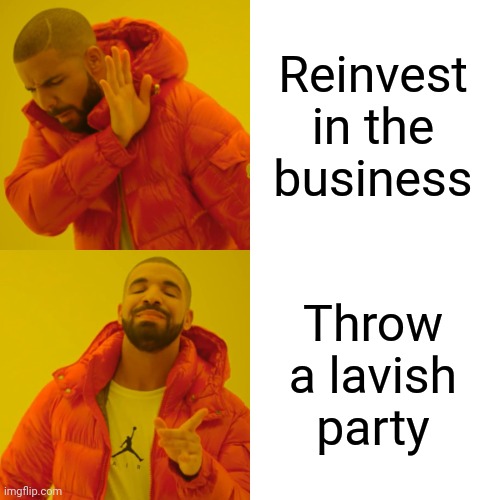Have you ever been stopped on the street by those “charity muggers”? Clipboard in hand, big smile, trying to guilt you into a monthly donation? Did you think they were unpaid volunteers raising funds for their favourite charity?
Wrong. I was one of them back in the day, so…
Here’s the actual business model:
These folks ain’t volunteers. They’re salespeople on commission, working for some third-party agency. No sign-ups =no paycheck.No basic salary. Rough stuff.
Charities often outsource their fundraising to these agencies. The agency takes a cut (sometimes the whole enchilada!) of the charity’s marketing budget and uses it to hire these “muggers.”
The agency’s main goal? Making bank. Sure, they’re helping the charity, but they are no charity themselves. Their own bottom line is what really matters. This can lead to some aggressive and shady tactics. In fact, they typically work for several charities. One week, you’re convincing people that sponsoring a child abroad is the best thing they can do. The next, you’re advocating for an animal sanctuary as if your life depends on it (it kinda does, if you want to eat that day).
There were star performers at that place. Master manipulators. Needless to say, I didn’t last long there. I just couldn’t invent a different persona for the sake of sales. Story for another time. Anywhoo.
This whole “charity mugger” thing highlights a big misconception about businesses, especially startups. We see a big valuation or investment and think, “Wow, I wish this was my company, I’d be set for life!” Don’t be so sure.
Many startups, even the ones making headlines, are burning through cash like crazy trying to become profitable as they scale, i.e grow rapidly to make a bigger impact on the market, hopefully establish themselves as a big player, maybe take out the competition too.
But here’s the thing: they tend to make it up as they go along, trying to find a sustainable business model that brings in enough revenue to cover expenses and eventually makes their investors happy. That is often not something they’re clear about from day one. And of course, things don’t always work out. Here’s 2 examples:
WeWork: The Party’s Over
WeWork, the coworking space giant, was once valued at a whopping $47 billion! They were the darlings of the startup world, promising to revolutionise how and where people work. Even I, at one point looked into them. I loved the idea of going to a different shared office space whenever I fancied a change from my four walls.

But behind the sleek offices and free beer, there was a HUGE problem: they were spending money recklessly. There’s stories of extravagant parties being thrown willy nilly. They were growing rapidly, but there were many issues under the hood.
When WeWork tried to go public in 2019, investors finally saw the cracks in the façade. The IPO failed spectacularly and the company’s valuation plummeted. They still exist, only just, a far cry from their old promising self.
Quibi: Short-Form, Short Lifespan
Quibi, a mobile-first streaming platform for short-form videos, launched in April 2020 with a ton of hype. They had raised $1.75 billion from big-name investors and Hollywood A-listers. But just six months later, they shut down. What went wrong?
Quibi bet big on people wanting to watch high-quality, short videos on their phones. But they overestimated the demand and failed to adapt when the pandemic hit and people’s viewing habits changed.

Despite the star power and massive investment, Quibi couldn’t find its footing. It serves as a cautionary tale of how even with a seemingly good idea and tons of cash, a flawed business model and an inability to adapt can lead to failure.
What’s the takeaway?
These examples, and countless others, highlight the crucial lesson: financial prudence is non-negotiable. No matter how brilliant your idea or how much money you raise, you need a good business model ensuring profitability as soon as possible, and your head squarely on your shoulders to adapt and thrive.
So, remember those “charity muggers” and their relentless pursuit of recurring donations. They might be annoying, but they embody a fundamental truth: make consistent income your goal, and spend less than you earn.
Whether you’re running a startup or hustling solo, here’s what you need:
The CEO Mindset: Think big picture, lead with vision. Stay on top of current trends. Be nimble.
The CFO Mindset: Know your numbers, manage your cash flow like a hawk, and make profitability your priority.
Don’t be fooled by appearances. Focus on building a solid structure covering the fundamentals: vision, execution, and financial planning. Then you’ll be set for long-term success.
If there’s something I am comfortable emulating from the general managers I brushed shoulders with while charity mugging, it’s their approach to financial planning: avoid debts. Invest your own money. Bootstrap. That means less hands in your pockets, no fluctuating interest charges eatingaway at your profits,more freedom and, if you play your cards right, sustainable growth that can also be surprisingly rapid.
That’s my wish for you (and me 😋)
Reflect, Redefine, Rise
R.


Leave a Reply